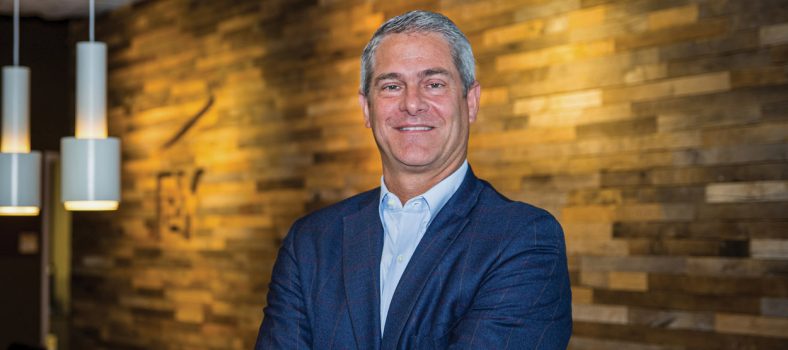A coalition of more than 25 National Indigenous Organizations has unveiled a new National Indigenous Economic Strategy (NIES), the first such strategy to be built and designed exclusively by Indigenous leaders, institutions, and organizations from across Canada. The strategy has four strategic pathways, People, Lands, Infrastructure and Finance, with 107 Calls to Economic Prosperity to guide Canadian society toward a more equitable and prosperous future. The Strategy reveals that policy changes and investments to correct a history of excluding Indigenous peoples from economic opportunity will benefit all Canadians, not just Indigenous peoples. Research has found that if the gap in opportunities for Indigenous communities was closed, it would result in a boost of more than $30 billion to Canada’s GDP. Further, if Indigenous peoples had equitable access to economic opportunities, 135,000 more First Nations, Métis, and Inuit individuals would be employed, bringing in $6.9 billion per year in employment income. At the same time, reducing poverty among Indigenous peoples would save federal and provincial/territorial governments more than $8 billion a year. “Canada has become wealthy from the natural resources of Indigenous lands while many Indigenous people continue to live in poverty,” says NIES spokesperson Dawn Madahbee Leach. A recent study conducted by the Canadian Centre for Policy Alternatives found that Indigenous children in Canada are more than twice as likely to live in poverty. “This is an opportunity for governments and the business sector to truly advance reconciliation, in a tangible way,” says Leach. “Reconciliation will be achievable when we embrace and foster a new era of Indigenous economic inclusion and wealth creation. This strategy shows a way to that goal that not only benefits Indigenous peoples, but all Canadians”. Industry and business play an extremely significant role in how the economic, social, and cultural aspects of reconciliation are addressed, including the extent to which opportunities and benefits are truly shared with Indigenous Peoples.
$ $ $
Buyer demand is at an all-time high, with equipment & truck finance applications up 18 percent from last year. Equipment and truck pricing has hit record highs in 2022, showcasing a sellers’ market with a ton of demand for equipment. For the first time in its history, Ritchie Bros. Financial Services (RBFS) has surpassed US$1 billion in open credit approvals from customers across North America. Chris Quinn, Vice President, Sales & Marketing, Ritchie Bros. Financial Services said RBFS’ two main financing solutions—PurchaseFlex and LeaseFlex—allow customers to buy what they want, where they want. Both options provide up to 100 percent financing with $0 down, low monthly payments, flexible schedules, and the ability to shop anywhere for almost anything. A third RBFS product just entering the market is EquityFlex, which gives customers the ability to refinance current equipment in their fleet for working capital needs, extend the period of financing to drive lower payments, or use the equity from free and clear machines to pay off debt on redundant equipment.
$ $ $
The International Finance Forum (IFF) is accepting applications for the annual IFF Global Green Finance Award. Echoing the theme of World Environment Day ,”Only One Earth”, which stresses on the need to change through policy changes and our choices to live in harmony with nature in a sustainable way, the IFF Global Green Finance Award is targeting applicants offering green financial solutions that promote the transformation of economic growth modes, contribute to pollution prevention and control and address climate change, as well as improve energy efficiency, energy conservation and emission reductions. This year’s award is a global call for innovations and application practices in policy, system, industry, services, technology and talent building.
The Earth is our only home, and we must protect its limited resources. Unsustainable consumption and production are contributing to climate change, natural degradation and biodiversity loss, as well as pollution and waste crisis. All of these issues intersect and overlap, seriously jeopardizing the future of the planet. Natural resources are the basis for most goods, services and facilities, and the foundation that supports our economy. However, the linear “take-make-dispose” model is driving the global economy while consuming vast amounts of natural resources. To limit global warming to 1.5°C this century, we must ensure that annual global greenhouse gas emissions are cut in half by 2030. However, due to the ongoing impact of the COVID-19 pandemic over the past three years and the recent intense geopolitical turmoil in the world, economies around the globe are sliding to the brink of economic and energy crises. We must take urgent action to address the looming crisis. However, all these require strong financial support. The IFF Global Green Finance Award was launched by the IFF in 2020, and is judged by a panel of 25 globally influential and authoritative financial leaders and elites from the financial and environmental sectors. In 2022, the award will include 10 Innovation Awards for innovative projects and 10 Annual Awards for institutions. IFF has been upgraded to F20 (Finance 20) status.




